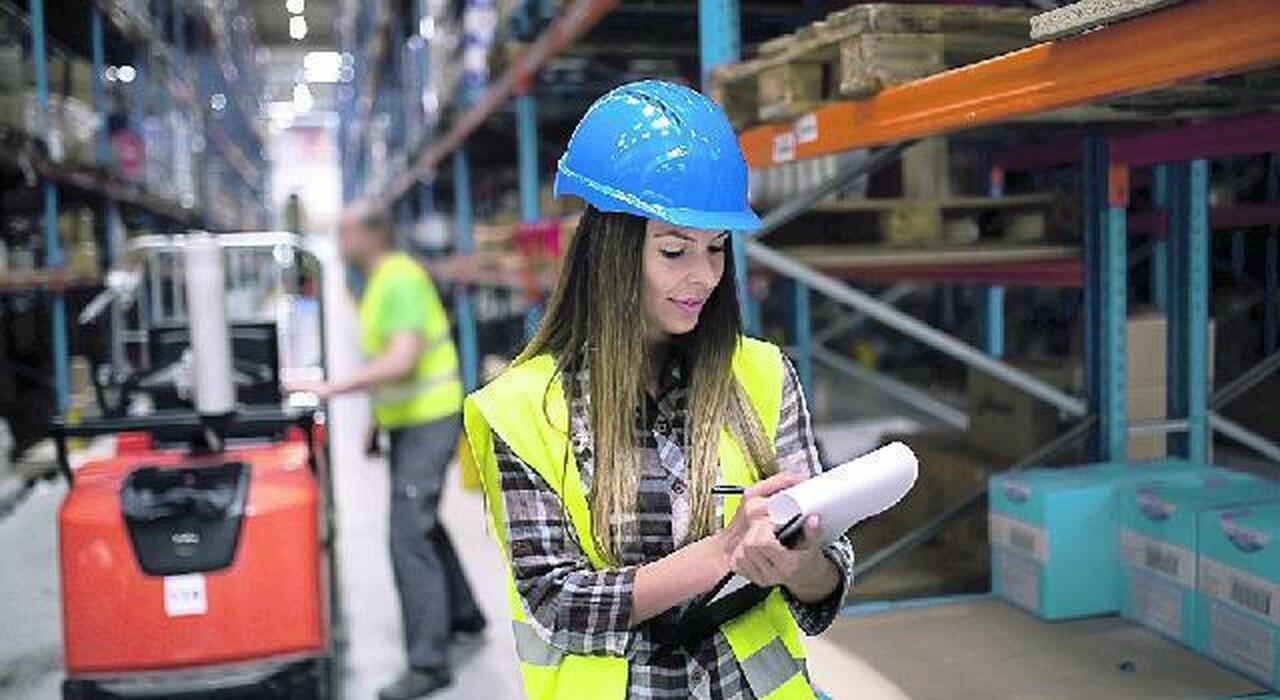Saturday 16 March 2024, 10:29
Make way for female truck drivers, warehouse workers, and designers of highly complex software for goods movement. The logistics sector, until now one of the most resistant to culturally opening up to female figures, has started a silent, yet significant and important revolution over the past few years, gradually crumbling many gender-related stereotypes.
Narni is looking for female scientists: a European project to encourage girls to choose scientific faculties.
THE HOPE
"A cultural change in favor of women is undoubtedly needed, but it is also to the advantage of logistics companies. Already today in Italy, national data shows, there are 14,000 drivers at the helm of even heavy vehicles," explains Federico Pozzi Chiesa, head of Italmondo SpA, a leader in the Italian and international logistics services sector for over 65 years. Within it, women exceed 40 percent of the workforce in various company sectors: from administration, to design, from movement, to planning. Beyond individual virtuous cases, investigations testify to the ongoing journey and the overcoming of traditional obstacles. It was once thought that women were not suited to manual and heavy work, or were unwilling to work shifts or to travel driving vehicles. Naturally, many clichés were also linked to the fact that women bore the exclusive responsibility for child care and housekeeping. With the start of policies in Europe aimed at bridging the gender gap, even the most male-dominated sectors are transforming. "Today, it is easy to encounter female reference figures who do planning for transport, hold design, the part related to the in-depth study of software that is studied ad hoc, in addition, they perform the so-called academy role, which means that it is no longer just men consolidating the development of human capital, maintaining the company's knowledge heritage or passing on different professions, enhancing relational and behavioral areas," emphasizes Federico Pozzi Chiesa.
'Don't be afraid. Think Stem.' The Ursula Grohmann Award to Women and Science: here's who won.
ROLES
It is not just a facade makeover but something that affects the deep organization of work. Naturally, in a logistics company, the most sought-after female roles do not immediately address warehouse movement or transport since the discussion inevitably shifts to the factor related to physicality, to male strength however, in the immediate future, with the progressive introduction of robotics and artificial intelligence, this barrier will also fall. For example, by using exoskeletons, equipment that adapts to the human body and allows to support great weights. They will certainly be able to break down other barriers considering the laborious and repetitive jobs that involve physical difficulties in loading and unloading goods from vehicles.
THE QUOTA
"It seems clear to me that to continue to grow and remain competitive, companies must overcome the prejudices always linked to 'women and motors' and increase the quota of female personnel." The experience gained shows that it is not at all a question related to political correctness: the increase in diversity is a fundamental factor to foster innovation, increase reputation and the ability to attract new talents, in an inclusive and collaborative work environment.
© ALL RIGHTS RESERVED
This article is automatically translated
